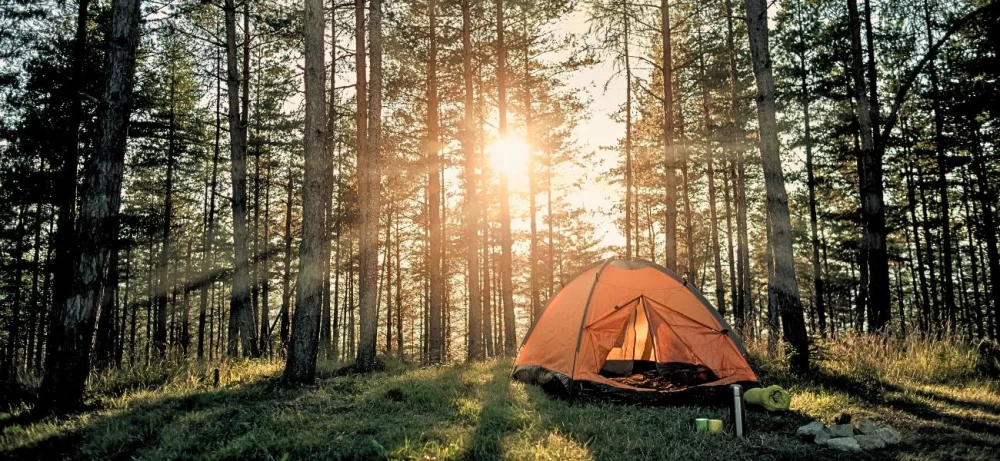Discover real-life unexpected moments from a U.S. camping trip, practical solutions, and safety tips to help you enjoy your next outdoor adventure with confidence.

Unforgettable Surprises from My Camping Trip Across the U.S.
Camping has always been my way to disconnect from technology and reconnect with nature. As someone who grew up in a city, heading into the wild always brought a rush of excitement. But nothing could have prepared me for the unexpected moments that turned my peaceful camping trips into unforgettable life lessons. Here’s a glimpse into what really happens when nature doesn’t go according to plan — and how to deal with it.
1. Sudden Weather Changes in the Rockies
Last spring, I set out for a solo camping trip in the Colorado Rockies. It was supposed to be mild, sunny weather. I double-checked forecasts, packed lightly, and was ready for a relaxing weekend. But on the second night, temperatures plummeted and a surprise snowstorm hit.
I woke up shivering, my sleeping bag soaked. I hadn’t packed winter gear, and my ultralight tent was buckling under the snow. With no phone signal, I knew I had to act quickly. I broke camp at sunrise and hiked five miles to a lower elevation where conditions were safer.
Lesson learned: Always prepare for extreme weather, especially in mountainous areas. Even in spring or summer, bring cold-weather gear, an emergency bivy, and a thermal blanket. Apps like AllTrails and Garmin InReach are also great for remote communication and navigation.
2. Wildlife Encounters at Night
During a summer trip to Yosemite, I heard what I thought was wind rustling through the trees around 2 a.m. It wasn't. I peered out of my tent and saw a bear nosing through our campsite.
Despite having stored food in a bear canister, we’d forgotten to remove scented items like toothpaste and lotion from our packs. The bear had already chewed through a backpack by the time we scared it off with whistles and clanging pots.
What I know now: Bears have a keen sense of smell, and anything scented can attract them. Always use bear-safe food storage and keep all items — even lip balm — stored away. Set up a bear perimeter alarm if you're deep in bear country, and never sleep with food or scented products inside your tent.
3. Campfire Gone Wrong in the Midwest
One summer evening in Wisconsin, I started a campfire with some dry brush and twigs I found nearby. What I didn’t realize was how dry the surrounding forest floor had become. A small gust of wind blew embers into dry leaves, and suddenly I was scrambling to contain a rapidly spreading ground fire.
Luckily, I had a water bucket nearby (a tip I got from a seasoned camper), and managed to control it before things escalated. But I’ll never forget the panic of almost starting a wildfire.
What campers should know: Always check local fire regulations and ensure there’s no burn ban in effect. Clear a 10-foot radius around your fire pit and keep water or sand on hand. Never leave a fire unattended, and fully extinguish it using the “drown, stir, and feel” method before going to sleep.
4. Gear Failure in the Desert
In the Arizona desert, my tent poles snapped in 40-mph wind gusts. With nothing to shield me, I used my emergency tarp and hiking poles to rig a temporary shelter. That night, I barely slept as the wind whipped through, reminding me how crucial quality gear is when conditions get tough.
Tips that saved me: Invest in a tent rated for your camping environment, and always carry a repair kit. Duct tape, zip ties, and extra guy lines can be lifesavers. Know how to rig a basic tarp shelter — it’s one of the most underrated skills a camper can have.
5. Getting Lost in Oregon’s Forests
Despite having a map and compass, I wandered off-trail near Crater Lake and lost my bearings. The thick fog didn’t help. My phone battery died shortly after I tried to check my GPS. Thankfully, I had marked my original trailhead with bright flagging tape and managed to retrace my steps — but it was a sobering experience.
For better navigation: Always let someone know your planned route and return time. Carry a physical map, a charged GPS device, and a backup battery. Practice orienteering skills at home — apps can fail, but a compass won’t run out of batteries.
How to Mentally Prepare for the Unexpected
Perhaps the biggest lesson I learned is that camping is as much a mental game as it is a physical one. In the face of fear — whether it’s a bear, a fire, or being lost — staying calm is critical. Practice mindfulness, trust your instincts, and never ignore your gut. The more time you spend in nature, the more confident you’ll become.
If you’re looking for a beautiful, safe place to camp in the U.S. with the right facilities and guidance, I highly recommend checking out Pine Cliff Resort. Whether you’re a beginner or a seasoned explorer, they offer everything from expert advice to fully-equipped camping spots that reduce the chances of running into the kinds of problems I did.
Camping is unpredictable, but that’s also what makes it magical. It challenges you, humbles you, and teaches you self-reliance in a way few other experiences can. With the right preparation and mindset, even the most unexpected moments can turn into epic stories you’ll tell for years.
Hidden Creek Farm and Camping Pitch
805 Jesse Byrd Rd, Hartsville, SC 29550, USA
Visit Location PageIndian Creek Landing Campground
682-, 690 Ohio River Scenic Byway, Vevay, IN 47043, USA
Visit Location Page